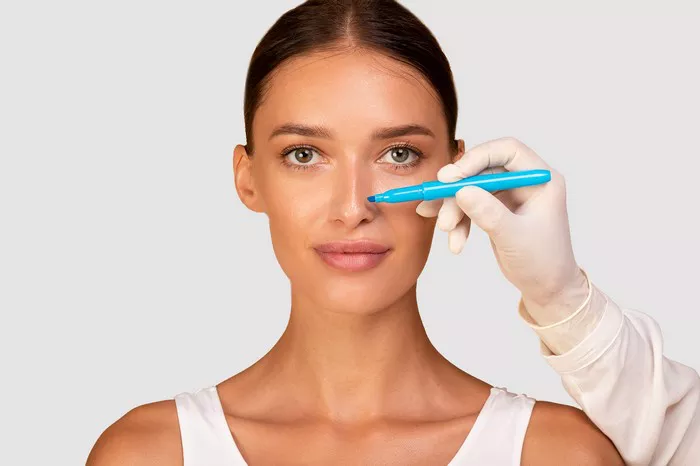Rhinoplasty, commonly known as a nose job, is a surgical procedure that aims to reshape and enhance the appearance of the nose. It is a popular cosmetic surgery option for individuals who are unhappy with the size, shape, or proportion of their nose. If you’re considering rhinoplasty or wondering, “What age can I get a nose job?” it’s important to understand the factors and age considerations involved in this decision. In this article, we will explore the age guidelines for rhinoplasty and the factors that influence the best time to undergo the procedure.
Age Guidelines for Rhinoplasty
The decision to undergo rhinoplasty is a personal one, and there is no strict age limit for the procedure. However, most plastic surgeons prefer to perform rhinoplasty on individuals who have reached full facial and nasal development. The typical age range for rhinoplasty is between 18 to 25 years old for women and 20 to 30 years old for men. These age ranges coincide with the time when facial growth is usually complete, and the nose has reached its final size and shape.
Factors to Consider for Age-Appropriate Rhinoplasty
While age is a general guideline, there are other factors to consider when determining the right time for a nose job:
-
Facial Growth and Development
The nose continues to develop throughout adolescence, and it’s important to allow sufficient time for the nose to reach its final size and shape before considering rhinoplasty. Prematurely performing rhinoplasty on a nose that is still growing can interfere with natural growth patterns and potentially lead to complications.
-
Emotional Maturity
Undergoing a surgical procedure like rhinoplasty requires emotional maturity and realistic expectations. It is essential for individuals to fully understand the potential risks, benefits, and limitations of the procedure. Emotional maturity and the ability to make informed decisions play a significant role in the overall satisfaction and success of the surgery.
-
Physical Health
Good physical health is crucial for any surgical procedure. Before undergoing rhinoplasty, individuals should be in good overall health and have no underlying medical conditions that could pose a risk during surgery or affect the healing process.
-
Psychological Readiness
Rhinoplasty can have a significant impact on an individual’s appearance and self-esteem. It’s important to assess one’s psychological readiness and motivation for the procedure. Open communication with a qualified plastic surgeon and discussing expectations and concerns can help determine if an individual is mentally prepared for rhinoplasty.
-
Parental Consent for Minors
In cases where individuals under the age of 18 are considering rhinoplasty, parental consent is required. Parents should be involved in the decision-making process, and a thorough discussion with the plastic surgeon is necessary to ensure that the procedure is appropriate and aligns with the minor’s physical and emotional well-being.
Individual Considerations for Rhinoplasty
Every individual is unique, and there may be specific circumstances that warrant rhinoplasty at a younger or older age:
-
Congenital or Functional Issues
In some cases, individuals may require rhinoplasty at a younger age to address congenital or functional issues with the nose. These include birth defects, nasal deformities, or breathing difficulties caused by structural abnormalities. In such instances, rhinoplasty may be performed earlier to correct these concerns and improve overall nasal function.
-
Corrective Rhinoplasty
Some individuals may have experienced nasal trauma or injury, such as a broken nose, at a younger age. Corrective rhinoplasty to address the damage and restore nasal aesthetics and function may be performed earlier, depending on the severity of the injury and the recommendation of the plastic surgeon.
-
Non-Surgical Alternatives
In cases where individuals are not yet suitable candidates for surgical rhinoplasty due to age or other factors, non-surgical alternatives may be considered. Non-surgical rhinoplasty involves the use of dermal fillers to reshape and enhance the nose temporarily. This can be an option for individuals who desire minor adjustments or who want to explore their options before undergoing surgical rhinoplasty.
Choosing the Right Surgeon
Selecting the right plastic surgeon is crucial for a successful rhinoplasty procedure. When considering rhinoplasty at any age, it is essential to choose a qualified and experienced plastic surgeon who specializes in facial procedures. Research the surgeon’s credentials, read reviews from previous patients, and schedule a consultation to discuss your goals and concerns.
Conclusion
The ideal age for rhinoplasty varies from person to person, and there is no one-size-fits-all answer to the question, “What age can I get a nose job?” Generally, it is recommended to wait until full facial and nasal development has occurred, which is typically around late teens to early twenties. However, other factors such as facial growth, emotional and psychological readiness, physical health, and specific nasal issues may influence the timing of rhinoplasty. Consultation with a qualified plastic surgeon is essential to determine the most suitable age and course of action for your unique circumstances.

